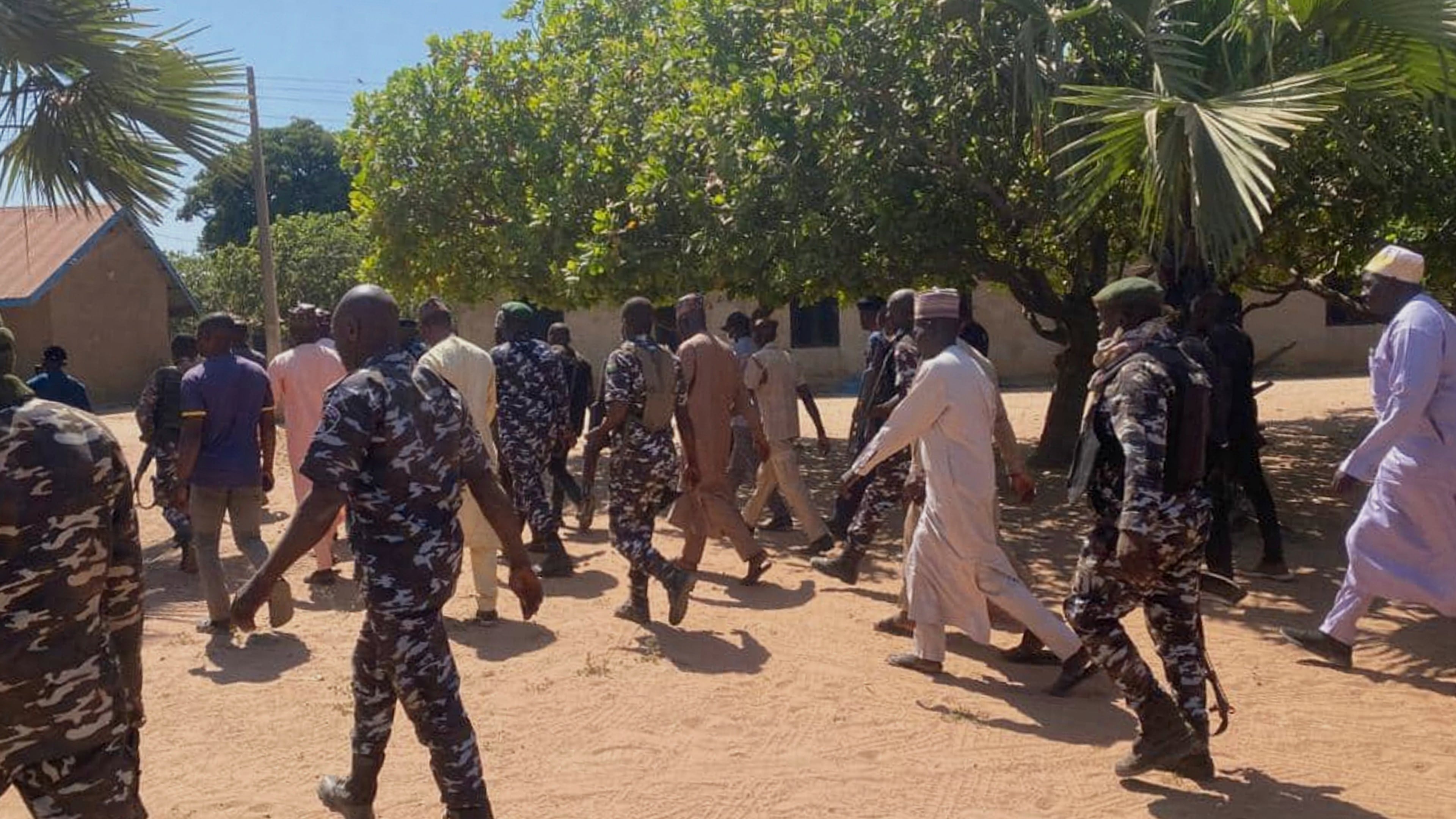Nigerian parents say they are kept in the dark over abducted schoolchildren

PAPIRI, Nigeria (AP) — Several parents of the over 300 schoolchildren seized by armed men in the latest mass abduction in Nigeria tell The Associated Press the government has told them nothing about rescue efforts — and the stress has been so high that one parent has died of a heart attack.
“Nobody from the government has briefed us about the abduction,” said Emmanuel Ejeh, whose 12-year-old son was taken from the Catholic school in Niger state.
No armed group has claimed responsibility for Friday's abduction of 303 children from the remote community of Papiri, the latest in a series of high-profile seizures in search of ransom. Fifty of the students have since escaped.
The rise in mass abductions from schools comes as the Trump administration pressures Nigeria to act against what it calls the persecution of Christians there — a claim Nigeria's government denies. Such abductions had decreased in the past two years.
Experts say Muslims suffer just as much or more from the attacks by bandits and militants linked to al-Qaida or the Islamic State group.
Nigeria's government has few answers
Parents have gathered at the dusty school compound in Papiri, attempting to comfort each other. Ejeh said his wife fainted after hearing their son was taken.
“It is painful,” Ejeh said. “Mathew is a very kind boy who dreams of becoming a football player. He is after football day and night.”
Two parents of abducted children have died, one of a heart attack, said the bishop of Kontagora diocese, Rev. Bulus Dauwa Yohanna, who also runs the school.
A spokesperson for Nigeria's presidency, Bayo Onanuga, did not directly address parents' allegations of being left in the dark. Onanuga told the AP on Wednesday that the military is mounting pressure on the gunmen to release the children.
Nigerian authorities have said helicopters and ground troops have been deployed. Military personnel mingled with anxious parents this week.
The attack came days after gunmen seized 25 students in nearby Kebbi state. All have been rescued, Nigerian authorities said on Tuesday. On Wednesday, police said the students had been reunited with their families.
An AP tally shows that at least 1,799 students have been abducted in a dozen of the largest attacks in Nigeria starting with the seizure of 276 schoolgirls in the village of Chibok by Boko Haram militants, an attack that sparked global outrage.
Some students escape. Others are rescued. Some are never seen again.
Some abducted students have health issues
When Yohanna Yakubu, a church pastor, heard his daughter Mercy was among the 12 teachers also taken in the Papiri attack, he ran to the school. Other agonized parents were already there.
“I went straight to her room (at the dormitory) and saw that the window was broken,” Yakubu said. He called the lack of information from authorities frustrating.
These days he sits in silence, worry creasing his face.
Danteni Mathew's three children were abducted, but one escaped. He worries about the health of his youngest, who remains missing.
“Yahaya was not healthy before his abduction from the school as he is still battling with hepatitis C," Mathew said.
School safety training had been promised
Under international scrutiny after the Chibok mass abduction, Nigeria's government initiated a Safe School Initiative with plans to involve military assets and train staff to improve safety at schools. Soldiers in some cases are stationed at schools considered vulnerable.
It was not immediately clear whether the Papiri school had received that training.
Activists and others assert that little has been done.
UNICEF last year said just 37% of schools across 10 states in Nigeria's volatile north have early-warning systems to detect threats.
“The fact is that Nigerian lives do not matter to the Nigerian government, and what matters to the Nigerian government is how good they look, so they are more focused on propaganda,” said Aisha Yesufu, who helped found the Bring Back Our Girls movement after the Chibok abduction.
Analysts say armed gangs are spreading
Analysts say armed gangs often target schools for abductions because of the pressure they put on the government to negotiate ransoms.
The West African nation is battling dozens of armed groups operating in remote communities with limited government and security presence.
The crisis has become more complex as groups from other parts of the vast Sahel region have joined Boko Haram factions in trying to establish their presence in northern Nigeria, said James Barnett, a research fellow with the U.S.-based Hudson Institute.
“Both bandits and jihadists can have similar interests in conducting these sorts of mass abductions,” he said.
___
Adetayo reported from Lagos, Nigeria.


